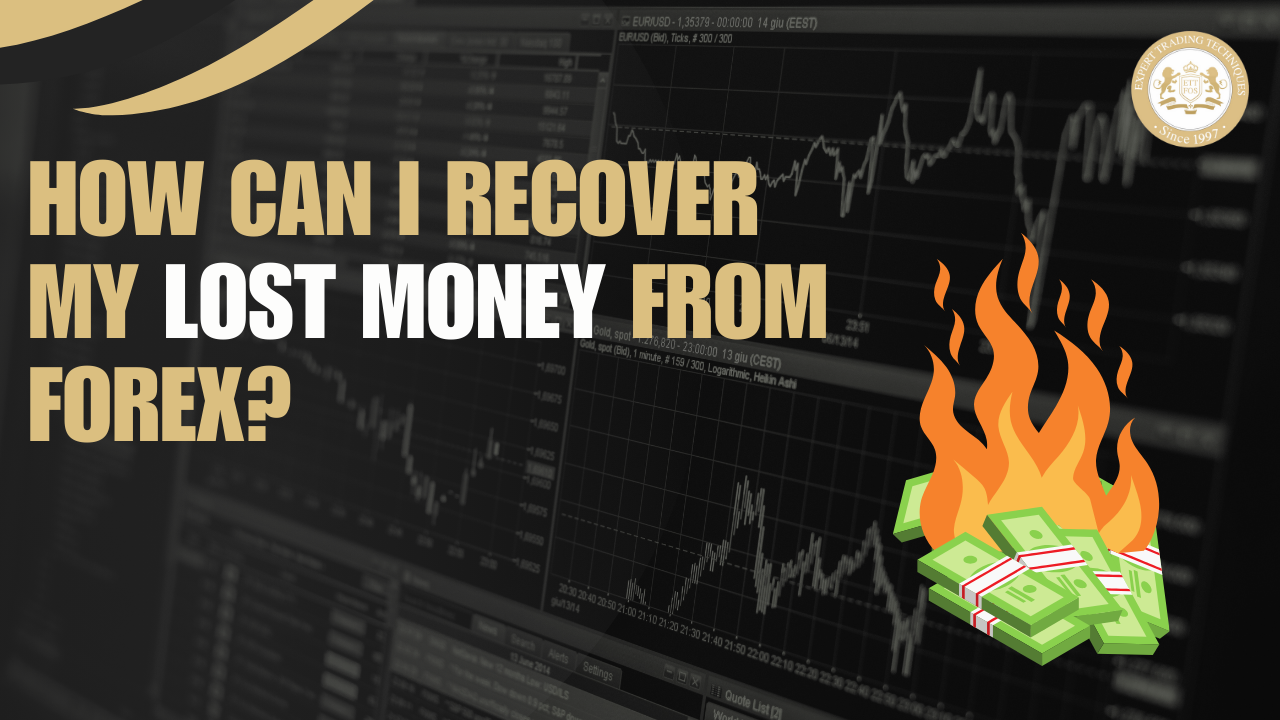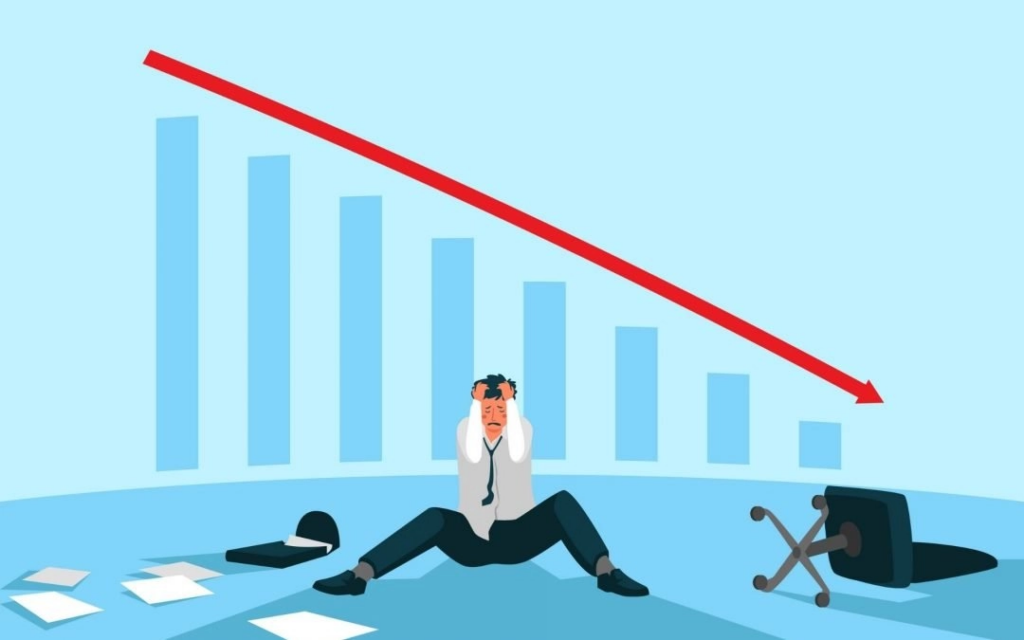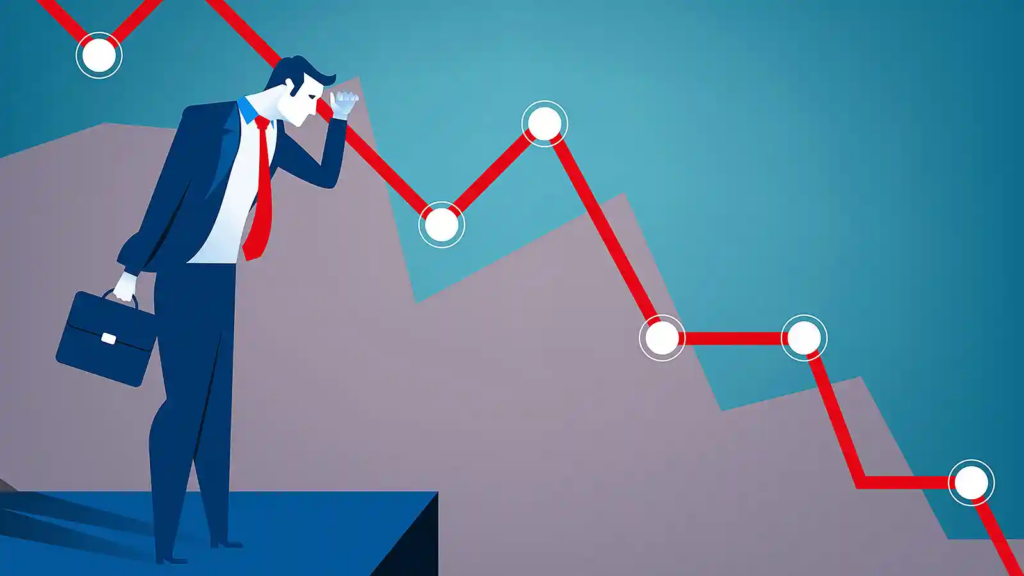
Did you know that Forex trading, despite its potential for high returns, results in losses for nearly 70% of traders? If you’re reading this, you might be one of those who have faced the frustration and financial strain of losing money in the Forex market. With over a decade of experience in this field, I understand how overwhelming it can be when your trading strategies don’t go as planned.
Forex trading, or foreign exchange trading, involves buying and selling currencies with the aim of making a profit. It’s a highly dynamic market, open 24 hours a day, five days a week, and is known for its high volatility and potential for substantial gains—or losses.
This article is here to provide a detailed guide on how to recover lost money from Forex trading. We’ll cover everything from understanding why you might have lost money to the various options available for getting your funds back. It’s crucial to grasp the Forex trading loss recovery process because the right steps can significantly improve your chances of reclaiming your losses.
If you’re feeling uncertain about what to do next, don’t worry. By following the strategies outlined in this guide, you’ll gain a clearer understanding of how to address the situation effectively and start on the path to recover funds from Forex scams. Let’s work together to turn this challenging experience into an opportunity for learning and regaining control over your trading journey.
Also Read: Why You Should Think Twice Before Starting Forex Trading with a Small Amount?

The win/loss ratio in trading is a straightforward measure of how often your trades are successful compared to how often they end in a loss. It’s calculated by dividing the number of winning trades by the number of losing trades. For instance, if you’ve had 10 winning trades and 5 losing trades, your win/loss ratio would be 2.0.
In simple terms, a higher ratio means you’re winning more often than losing, which is generally a good sign. But keep in mind that a high win/loss ratio doesn’t automatically guarantee profitability. It’s crucial to also consider the size of your wins versus your losses. A strategy might have a high win/loss ratio but still be unprofitable if the losses are significantly larger than the gains. For traders, understanding and monitoring the win/loss ratio helps in evaluating the effectiveness of their trading strategies and making adjustments to improve their overall performance.
Also Read: Best Forex Trading Books

Forex trading losses occur when the value of your trades decreases, resulting in a financial loss. This can happen for several reasons:
The foreign exchange market is highly volatile. Prices can change rapidly due to economic news, political events, or market sentiment. If the market moves against your position, you might incur a loss.
Sometimes, losses result from mistakes like entering or exiting trades at the wrong time. For example, buying a currency pair just before its value drops can lead to losses.
Using high leverage means you’re borrowing money to trade. While this can amplify gains, it also increases the risk of significant losses. For instance, if you use 10:1 leverage and the market moves 1% against you, your loss is 10% of your capital.
Trading without a solid plan or strategy can lead to losses. Without clear goals, risk management rules, and a strategy, it’s easy to make impulsive decisions that result in losing trades.
Not understanding market trends, economic indicators, or trading strategies can lead to poor decisions and losses. Trading without sufficient knowledge or research can make you vulnerable to losses.
Sometimes, losses come from dealing with dishonest brokers. Fraudulent brokers might offer unrealistic returns or engage in unethical practices. If you trade with a broker who’s not regulated or trustworthy, you might face issues like hidden fees, unauthorized transactions, or outright scams. For instance, brokers not registered with the Financial Conduct Authority (FCA) or the Securities and Exchange Commission (SEC) may not follow fair trading practices.
Also Read: Is Taking a Loan for Forex Trading a Wise Move for Forex Traders?

If you’ve lost money in Forex trading, taking quick and organized steps can help you address the situation and Forex trading loss recovery. Here’s what you should do:
Start by looking through your trading history and account statements. Identify which trades resulted in losses and try to understand why they happened. This review can help you spot any patterns or mistakes and help in Forex trading loss recovery.
Determine if the loss was due to normal market fluctuations, poor trading decisions, or something more serious like fraud. If the loss seems unusual or if you suspect foul play, it’s important to investigate further.
Collect all relevant documents, including trading statements, transaction records, and any communication with your broker. This information is crucial if you need to file a complaint or take further action.
Keep a record of all interactions with your broker, such as emails, chat logs, and phone calls. This documentation can be useful if you need to prove your case later.
Also Read: Can a 17-Year-Old with $100 Start Forex Trading?

If you’ve lost money in Forex trading, there are several steps you can take to try and have Forex Trading Loss Recovery:
Start by reaching out to your broker’s customer service or compliance department. File a formal complaint, explaining your situation clearly and providing all necessary documentation. Sometimes brokers are willing to settle disputes directly.
If contacting the broker doesn’t resolve the issue, you may need to consider legal action. You can file a lawsuit or request arbitration if your broker’s contract includes an arbitration clause. An experienced lawyer specializing in financial disputes can guide you through this process of Forex Trading Loss Recovery.
File a complaint with financial regulatory bodies such as the Financial Conduct Authority (FCA) in the UK or the Securities and Exchange Commission (SEC) in the US. These agencies can investigate and sometimes help recover lost funds.
There are firms that specialize in recovering funds lost to scams or fraud. Be cautious, though. Research any recovery service thoroughly to ensure they are legitimate and check their reviews and success rates before engaging their services.
Also Read: How Much Money Do You Need to Start Forex Trading?

If traditional recovery methods aren’t working, you can explore alternative ways to try and get your money back from a Forex scam:
If you made payments through your bank or credit card, contact them immediately. Some banks can reverse transactions if they’re reported as fraudulent. Provide them with all the details about the scam and the transactions involved.
If you paid using a credit card, you might be able to request a chargeback. This is where your credit card issuer reverses the payment if you can prove the transaction was fraudulent or unauthorized. Check with your card issuer for their specific process and deadlines.
If you used an online forex trading payment platform like PayPal or Skrill, file a complaint with them. These platforms often have dispute resolution processes and may help recover funds from forex scams if they find evidence of fraud.
Join forums or online communities related to Forex trading. Other traders might share their experiences or recommend ways to recover lost money from forex trading based on their own experiences.
A financial advisor can offer personalized advice on your situation and suggest additional recovery options. They can also help you understand your rights and navigate the process more effectively.
Also Read: Can You Start Forex Trading Without Broker?
Yes, it is sometimes possible to get back money from a Forex scam, but the chances vary depending on several factors. The success of recovering funds from Forex scams largely depends on the nature of the scam, the actions you take afterward, and the entities involved. If the scam involves a regulated broker or financial institution, there may be better prospects for recovery through legal or regulatory channels. However, if the scammer is unregulated and the funds have been moved or hidden, recovery can be much more difficult. While not guaranteed, pursuing all available options promptly increases your chances of getting your money back.
Examining real-life examples can provide insight into how people have successfully or unsuccessfully recovered money from Forex scams.
One trader lost a significant amount of money to a fraudulent broker. By promptly reporting the scam to financial regulators and gathering detailed evidence, they were able to secure an investigation. The regulators intervened, and the trader eventually recovered a substantial portion of their funds. This case highlights the importance of quick action and thorough documentation.
In contrast, another individual faced a scam where the broker was unregulated and disappeared with the funds. Despite various efforts, including contacting the broker and seeking legal advice, recovery was unsuccessful. This case underscores the challenge of recovering funds from Forex scams and the importance of dealing with reputable, regulated brokers.
Also Read: Can Forex Trading Be Chosen as a Job?

Preventing future losses in Forex trading involves proactive steps and careful planning. Here’s best strategy to avoid losses in forex trading:
Selecting a trustworthy broker is crucial for protecting your investments. Ensure the broker is regulated by a respected financial authority like the FCA (Financial Conduct Authority) or the SEC (Securities and Exchange Commission). This regulation ensures that the broker adheres to strict standards, providing a layer of security against fraud. Additionally, research the broker’s reputation by reading reviews from other traders. Look for feedback on their service quality, reliability, and any past issues. This due diligence helps avoid brokers with a history of scams or poor performance.
Improving your trading knowledge and skills is essential for making informed decisions and minimizing risks. Invest time in learning through educational resources such as trading courses, books, and webinars. One notable resource is ETTFOS, which offers comprehensive trading courses designed to build your expertise and refine your strategies. ETTFOS provides in-depth lessons and practical training to help traders of all levels improve their skills and navigate the Forex market more effectively. Additionally, practice your strategies using demo accounts, which allow you to trade with virtual money. This practice helps you refine your techniques and gain confidence without risking your actual capital.
Effective risk management is key to preventing significant losses. One crucial tool is the stop-loss order, which automatically closes a trade when it reaches a certain loss threshold. This mechanism helps you limit potential losses and protect your capital from significant downturns. Additionally, avoid excessive leverage, which involves borrowing money to increase your trade size. High leverage can amplify both gains and losses, so it’s wise to use it cautiously. Keeping leverage at a manageable level helps safeguard your investments from substantial losses.
Staying updated with market trends and economic news is vital for making informed trading decisions. Regularly monitor financial news, market analyses, and geopolitical events that can influence currency movements. This awareness helps you anticipate market changes and adjust your trading strategies to avoid loss in forex trading accordingly. Continuously update your knowledge about trading techniques and market conditions to stay ahead of trends and improve your trading performance. Adapting to new information and evolving market dynamics can significantly reduce the risk of losses.
Also Read: How Did Forex Trading Change Your Life?

Spotting a Forex trading scam can save you from losing your money. Here’s what to look out for:
Be wary of brokers or schemes that guarantee high returns with little risk. If something sounds too good to be true, it probably is. Scammers often promise easy profits to lure in investors.
Check if the broker is regulated by a reputable authority, such as the Financial Conduct Authority (FCA) in the UK or the Securities and Exchange Commission (SEC) in the US. Regulated brokers follow strict rules to protect traders. If a broker is not listed with any recognized authority, it’s a red flag.
Scammers often create a sense of urgency, pressuring you to invest quickly or make large deposits. They might use high-pressure sales tactics or emotional appeals to get you to act without thinking.
Some brokers might have hidden fees or charges that aren’t clearly disclosed. Always review the terms and conditions carefully and ask about any fees before you start trading.
Look out for trading platforms that lack transparency or have technical glitches. If a platform is difficult to use, has unclear terms, or doesn’t offer reliable customer support, it could be a scam.
Losing money in Forex trading can be stressful, but taking swift and organized action is crucial for recovery. Start by thoroughly reviewing your trading records and assessing whether the loss was due to market factors or fraud. Gather all relevant evidence, such as trading statements and communications with your broker.
From there, you have several recovery options. Contact your broker first to try and resolve the issue directly. If that doesn’t work, consider seeking legal action or reporting the scam to financial regulators. You might also explore using recovery services, but make sure to research them carefully.
Acting quickly and following these steps will improve your chances of recovering your funds. If you’ve lost money in Forex trading, begin by assessing your situation and using these advanced trading strategies pro traders use to boost your chances of recovery. For additional support and guidance, ETTFOS offers valuable educational resources and expert advice. Consider consulting with ETTFOS for personalized assistance, or a financial expert or legal professional, to help you navigate the recovery process effectively.
If your broker is unresponsive, start by trying to contact them through all available channels, such as phone, email, and their official website. Document all attempts to reach them, including dates and methods used. If you still don’t receive a response, escalate the issue by filing a formal complaint with relevant financial regulators or ombudsman services. It may also be helpful to consult a legal expert who can advise on further steps, such as pursuing legal action or reporting the issue to financial authorities.
The time it takes to recover lost money from Forex trading varies depending on several factors, including the complexity of the case and the methods used. If you’re dealing with a regulated broker and have clear evidence of fraud, recovery might be quicker through regulatory channels or legal action. However, if the scam involves unregulated entities or if evidence is scarce, it could take longer. Generally, it can take anywhere from a few months to over a year to see results, so it’s important to be patient and persistent throughout the recovery process.
Forex recovery services can be effective, but their success rates vary. Reputable firms specialize in recovering funds lost to scams and can offer valuable assistance. However, the effectiveness of these services depends on the nature of the scam and the firm’s expertise. It’s crucial to thoroughly research any recovery service before engaging with them to avoid falling for additional scams. Look for reviews, verify their credentials, and ensure they have a track record of successful recoveries.
Recovering money from an unregulated broker is significantly more challenging. Unregulated brokers often operate outside of legal and regulatory frameworks, making it difficult to enforce recovery through traditional means. However, you can still try to file complaints with any available regulatory bodies or financial ombudsmen, if applicable. In many cases, seeking legal advice and pursuing a lawsuit may be necessary, but the success of such actions largely depends on the specifics of your case and the broker’s location.
That is very fascinating, You are a very professional blogger.
I’ve joined your rss feed and look forward to looking for more
of your fantastic post. Additionally, I’ve shared your
site in my social networks
Wow that was odd. I just wrote an incredibly long comment but
after I clicked submit my comment didn’t appear. Grrrr…
well I’m not writing all that over again. Anyways, just wanted to say superb blog!
Somebody essentially assist to make seriously articles I’d state.
That is the first time I frequented your website page and
so far? I surprised with the research you made to create this actual post extraordinary.
Fantastic process!
It’s really a cool and helpful piece of info. I am glad that you simply shared this useful info with us.
Please keep us informed like this. Thank you for sharing.
Hey There. I found your blog using msn. This is a really well written article.
I will be sure to bookmark it and come back to read more of
your useful information. Thanks for the post. I’ll definitely return.
Howdy! This article could not be written any better!
Reading through this article reminds me of my
previous roommate! He continually kept preaching about this.
I will forward this post to him. Pretty sure he’s going to
have a great read. Thanks for sharing!
Your style is so unique compared to other folks I
have read stuff from. Thanks for posting when you have the opportunity,
Guess I will just book mark this page.